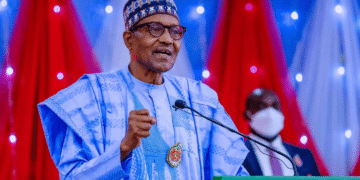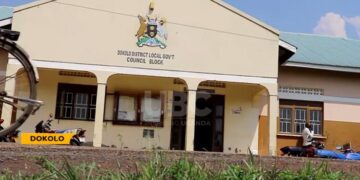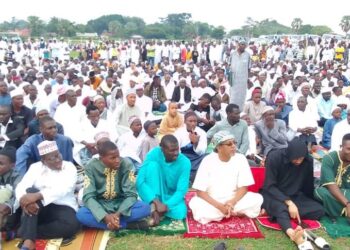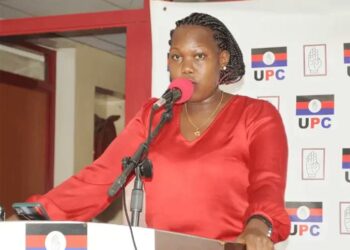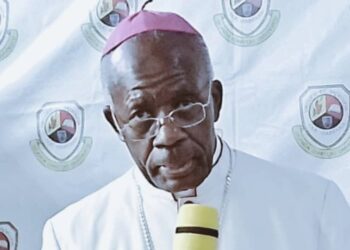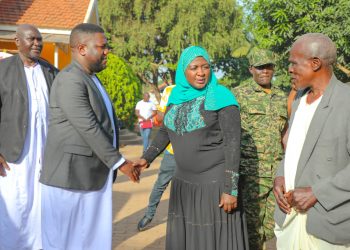National
Over 200 high ranking officials and influential figures from different parts of the world have resolved to collectively fight child trafficking and foster a safe environment that protects children from cyber predators who target and lure them into forced labour.
This was resolved during the recently concluded Global Security Liberalization Symposium 2024 which ran under the theme, “ Fostering Actionable Solutions to Multifaceted Challenges Posed By Human Trafficking, in Niagara Falls, Ontario, Canada.
Organized by OEIS Investigation & Security, led by, Dr. Dinah Mourise & Mr. Mansour Ihab, the Symposium crafted ways to hasten security liberalization for the critical cause of rescuing children from the horrors of human trafficking, as a global conflict that knows no creed or race.
The Ugandan delegation was comprised of the 3rd Deputy Prime Minister Rt. Hon. Rukia Nakadama and the ,the Senior Presidential Advisor on Diaspora Affairs & Ambassador at Large, Abbey Walusimbi, who joined other experts from around the globe who shared with their counterparts on liberalization experiences and exchanged information & views on trends, impacts, and learnt lessons about different policy options and approaches.
Speaking at the event, Rt. Hon. Nakadama told the global gathering that there is urgent need to resolve conflicts, promote children’s well-being, in order to build peaceful future generations, adding that “It’s our responsibility to always adapt to ensuring children acquire the knowledge and skills needed to promote sustainable development and peaceful futures, including embracing fundamentals for sustainable development. Education for children in conflict and build more peaceful societies, empowered futures for global sustainable development.”
She emphasized that the Uganda government believes in extending care services and addressing trauma, through structural provisions that permit living, an almost normal life, hence addressing people’s psychiatric challenges, through medical and psychological approaches.
“Implementing trauma-informed care for children in war zones or have been exposed to severe trauma due to forced child labour is crucial for addressing deep emotional wounds caused by conflict. Providing education initiatives in conflict areas provides children a chance to learn and creates a foundation for peace by providing them hope and a sense of normalcy amid chaos.” She emphasized.
OEIS’s President Mr. Ihab Mansour drew the audience’s attention to cyber security, with emphasis on safeguarding children in an evolving digital landscape, saying that “In today’s interconnected world, the digital age has brought incredible advancements and opportunities. However, these come with a darker side that is increased risk of child abuse in the digital realm. “
Whereas these platforms offer educational content, entertainment, and opportunities for socialization, they also expose children to potential risks and one of the most alarming threats in the digital age is the presence of online predators. These individuals use the anonymity of the internet to exploit and manipulate unsuspecting children. They often present themselves in form of peers or even family who befriend our children, and after gradually gaining their trust , they lure them into engaging in harmful activities, on top of cyber-bullying.
Mansour further called for open communication between parents and children regarding their online experiences, adding that, “We should empower children with digital literacy skills, teach them about online privacy, the consequences of sharing personal information, and how to recognize and report inappropriate content or behaviour.”
In his communication, Ambassador Abbey Walusimbi underscored the need for collective vigilance and action, urging key players to recognize the value of legal & safe migration pathways, as a cornerstone in the fight against human trafficking.
Citing the office of the president’s efforts toward curbing illegal labour movement in liaison with joint security forces, which has helped save more that 500 would be victims. He added that “In Uganda, under the unwavering leadership of H.E. President Museveni, we have made significant strides in safeguarding our citizens. President Museveni’s administration has been at the forefront of pioneering robust anti-trafficking laws, bolstering our law enforcement capabilities, and fostering international partnerships that enhance our protective measures.”
All stakeholders at the symposium agreed to collectively help children escape trafficking, but also aid the rescued ones to develop skills and gain knowledge, that’s needed to succeed in school and the professional sector.
In addition, implementing trauma-informed care of children in war zones, it was agreed that its is crucial to address the deep emotional wounds caused by conflict by providing education initiatives in conflict areas which will give these innocent souls a chance to learn, and creates a foundation for peace by providing them hope and a sense of normalcy amid the chaos.
The Symposium host Ms. Lisa Stark Hughes a Public health Entrepreneur, testified to Uganda’s efforts to protect its citizens from exploitation and illegal labour movement. She urged other countries to emulate this example and ensure that an end is put to under age labour which risks the lives of the young people.
The over fifty speakers comprised of Ambassadors Marsha (Jamaica), Naloum (Chad), Detective inspector Sharon Hanlon, Detective Staff Sergeant Brown Michael Reventar (Actor), among other security & legal personnel, highlighted threats posed by human trafficking, as well as the connection between it’s complexities and global security liberalization, and resolved to do everything in their power to make the world a better place for children by protecting them from heinous habits that affect their right to growth.

















